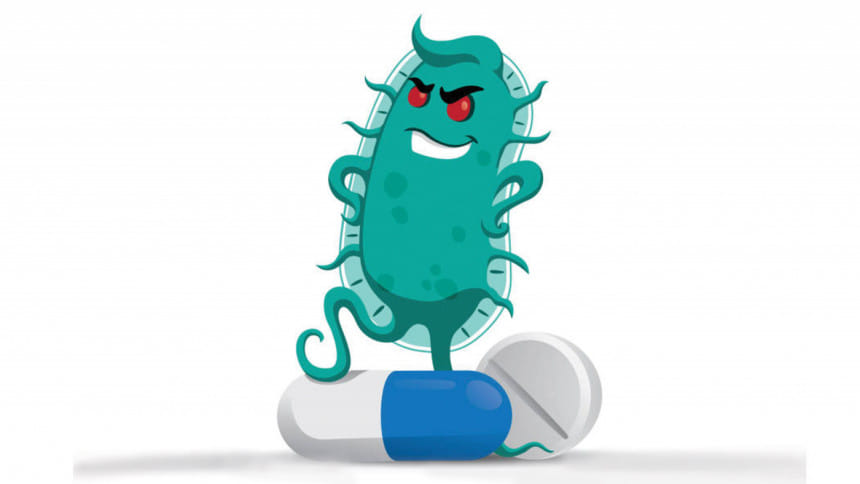Are you willing to “go blue for AMR”?

The World Health Organisation (WHO) declared that Antimicrobial Resistance (AMR) is one of humanity's top 10 global public health threats. Although antimicrobial resistance emergence is a concern in all countries regardless of income level, low- and middle-income countries (LMICs), which included Bangladesh, bear a heavier burden.
Bangladesh is facing an accelerating crisis of antimicrobial resistance (AMR), where antibiotics are frequently overused or misused across healthcare and agriculture. In many communities, antibiotics are viewed as a quick fix, often taken without proper prescriptions. This misuse leads to the development of "superbugs," strains of bacteria that resist standard treatments, making infections harder—and sometimes impossible—to cure. For young people in Bangladesh, the AMR crisis threatens not just public health but also the future of effective medical care.
Already 700,000 deaths annually are attributed to AMR. The 2016 O'Neill Report suggested that, without prompt action, AMR could claim as many as 10 million lives annually by 2050—more than diabetes and cancer combined—with potential economic damage similar to that caused by the 2008 financial crisis.
Bangladesh celebrates World Antimicrobial Awareness Week every year to raise awareness of antimicrobial resistance worldwide and encourage best practices among the public, health workers, and policymakers to slow the development and spread of drug-resistant infections. However, I want to shed light on the 2022 celebrations. The Directorate General of Drug Administration (DGDA) and WHO Bangladesh initiated school activities to raise antimicrobial awareness among children. This included an art competition and comic book distribution among the students to make the audience understand the AMR with fun activities.
Utilising such creative steps as comics can play a pivotal role in engaging young students to communicate complex information on antimicrobial resistance in simple language. Through compelling storytelling and graphics, this method effectively raises awareness and promotes understanding of this important issue of antimicrobial resistance among the young students; the message will carry over to their families and promote awareness and health consciousness around AMR.
Health professional networks worldwide are mobilising themselves through different avenues in an attempt to empower future healthcare leaders and professionals to fight this emerging crisis. One such example is the International Federation of Medical Students Associations (IFMSA)'s organisation of the AMR Youth Summit on the margins of World Antimicrobial Awareness Week and in collaboration with the World Healthcare Student Alliance. The summit, supported by the IDEA Initiative at the Johns Hopkins Bloomberg School of Public Health, focuses on the role youth can play in tackling challenges presented by AMR through panel discussions with high-level speakers, competitions, article presentations, seminars, and training sessions.
Young Bangladeshis, as future doctors, nurses, pharmacists, and advocates, have the power to change this trajectory. However, the awareness campaigns are majorly within the walls of the medical colleges rather than community engagement. We need to explore how youths can take action to safeguard antibiotics and ensure Fleming's discovery continues to save lives for generations to come.
The battle against AMR is in our hands. So will we go blue to preserve the power of antibiotics or let this life-saving tool slip from our grasp? The answer lies in our commitment as the youth to a healthier tomorrow, starting with responsible actions today!
The writer is a final year medical student at Shaheed Suhrawardy Medical College and member of Bangladesh Medical Students' Society (BMSS) and United Nations Youth Advisory Group (UNYAG).
Email: [email protected]

 For all latest news, follow The Daily Star's Google News channel.
For all latest news, follow The Daily Star's Google News channel. 



Comments